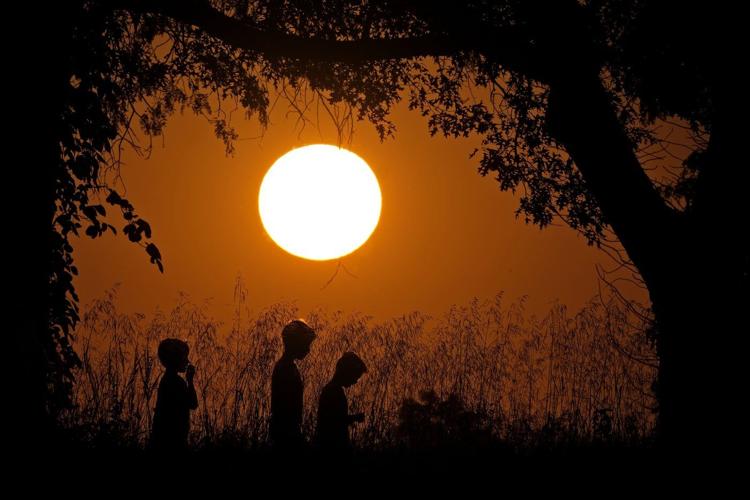The emotional toll of climate change continues to deepen in 2025, particularly among younger generations.
Many experience a mix of anxiety, fear, grief, and helplessness over a warming planet and what the future might bring. These emotions can disrupt sleep, cloud concentration, and raise questions about family planning and the ethics of having children.
Climate psychologists, teachers, and community advocates are working to ease these emotional burdens. Here are several approaches they recommend.
Connect through local action
Climate psychologist Laura Robinson in Michigan encourages people to join community efforts that restore nature and protect ecosystems.
She says planting native species, protecting wildlife corridors, or reducing pesticide use can ease isolation and support mental health.
“I see people struggling across all age groups,” Robinson says. “Many parents are deeply worried about their children’s future.”
Try a ‘positivity sandwich’
To manage overwhelming climate news, some experts suggest a “positivity sandwich.”
Start with a hopeful story, then address a harder truth, and end with another positive development.
Limiting news alerts and taking social media breaks also help reduce distress.
Model hope through action
Phoebe Yu of California left a tech career to focus on sustainable living and raising her son with eco-conscious values.
Her family drives an electric vehicle, avoids meat, recycles, and composts.
“I try to explain the environment to my son,” Yu says. “Kids can understand and turn that into action.”
Support student expression
Britnee Reid teaches virtual middle school science in North Carolina and uses an emotional resilience toolkit developed by the Climate Mental Health Network.
Students document their nature experiences in a timeline exercise that inspires them to take action.
“They’re anxious but motivated,” Reid says. “They want to be the change.”
Talk openly about feelings
Oregon psychotherapist Patricia Hasbach integrates nature into therapy and teaches clients to express their emotions around climate issues.
“Young people think they’re alone in their worry,” she says. “That isolation can make things worse.”
Hasbach stresses the power of language in building resilience and collective understanding.
See yourself as part of the solution
Physicist and author Kate Marvel emphasizes that no one is powerless in the fight against climate change.
“We’re incredibly powerful together,” she says. “The atmosphere reacts to what we all do. That’s where real impact lies.”


